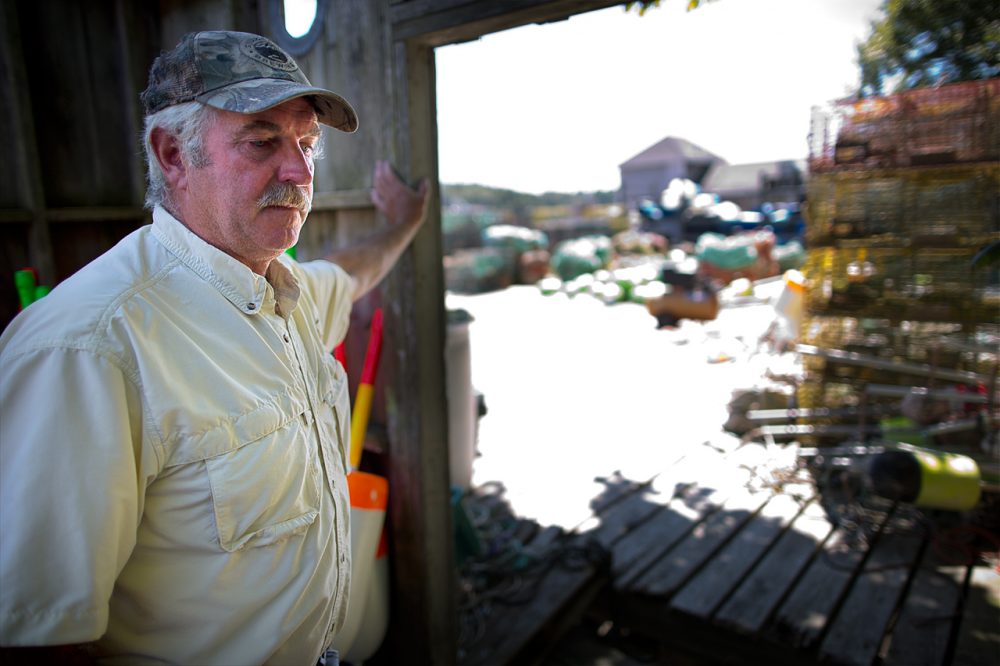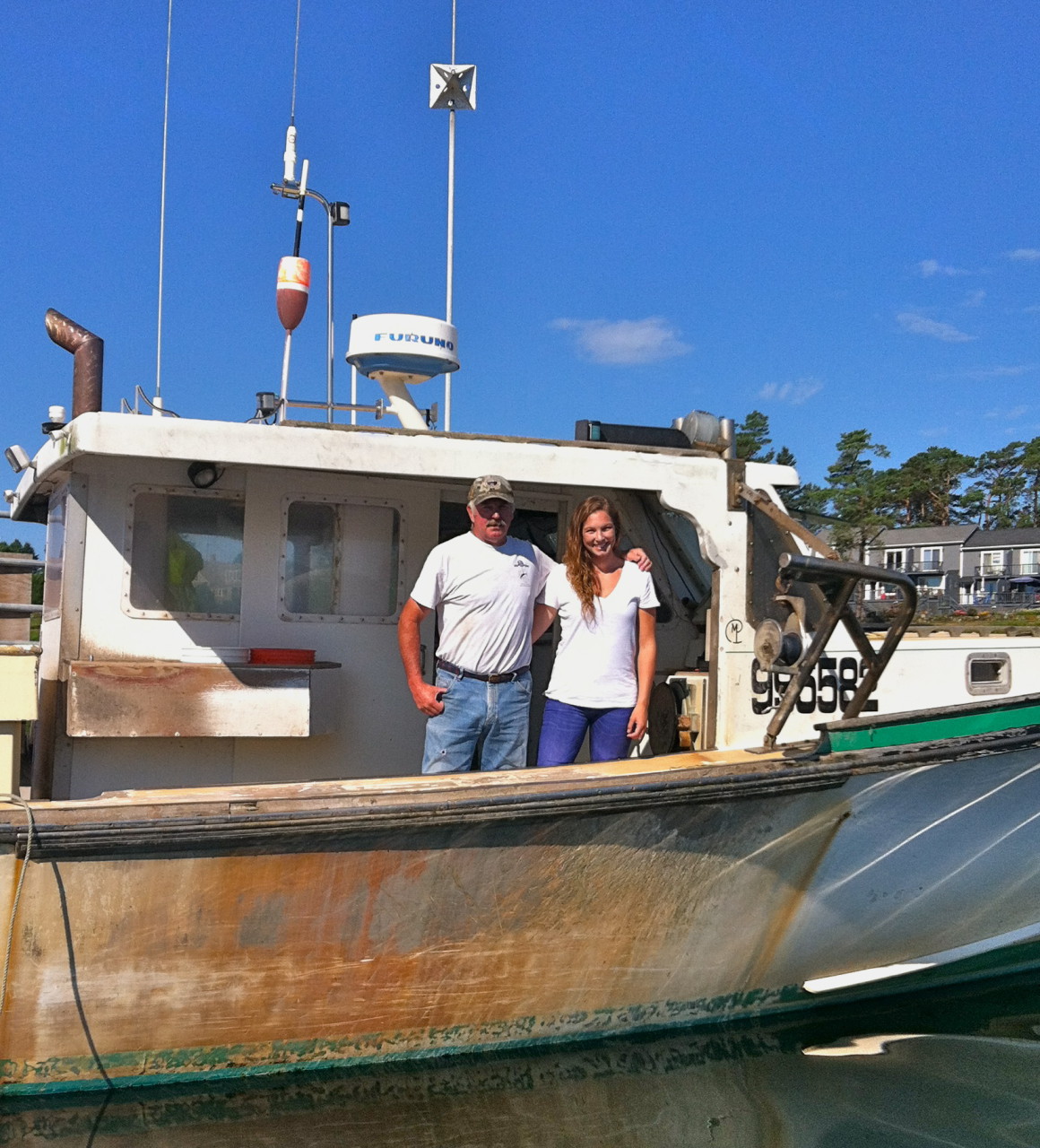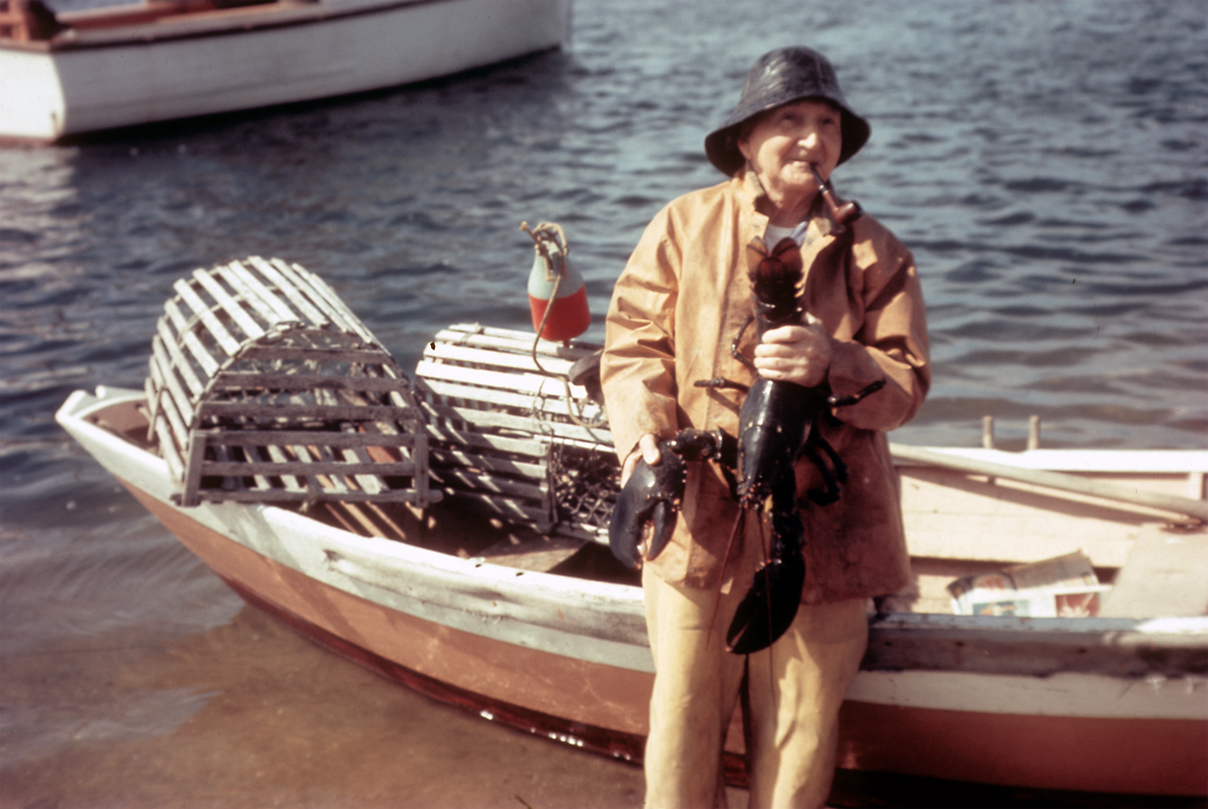Advertisement
Hidden Price Of That Succulent Lobster: Health Woes Of Stoic Lobstermen

By Richard Knox
Mainer Jon Rogers started lobstering 47 years ago at the age of 10, when he’d go out on his grandfather’s boat.
Ask him about his health and he says, “No worse than anyone else who uses his body in his work. My hips are sore, my knees are sore, my shoulders are sore, my back is sore. I get up every day and it takes me awhile to get going. I hurt every day.”
But Rogers, who lives on a skinny, south-pointing finger of land in Casco Bay called Orr’s Island, doesn’t go to the doctor much. “I never really complained about too much unless I was really hurting,” he says.
“I’d schedule a doctor’s appointment with all the intentions of going,” Rogers says. “But if there was an opportunity to haul traps for a few days, I’d set aside the doctor’s appointment and go haul traps.” This summer he’s running 800 traps, which means his days starts around 5:30 a.m.
Rogers appears to be pretty typical of Maine’s 5,000 lobstermen, and of all 9,000 people who work in the state’s fishing industry.
“They work really hard and have a lot of chronic diseases,” says Miranda Jo Rogers, Jon's daughter. “These people have a stoic mentality — they don’t seek health [care] until they really need it. So there are no really positive role models on how to be proactive and keep healthy.”

Miranda Rogers aims to do something about that. Although she’s still a Tufts Medical School student, she’s taken on a project she expects will take her to graduation and beyond — maybe decades beyond.
“I am happily indebted to the community that raised me, and I wish to make a long-lasting difference in Maine,” she wrote recently to the state’s lobster harvesters, asking them to fill out a 24-page questionnaire on their health.
It will be the most complete look ever at the health of a difficult-to-reach population with special health care needs, low rates of health insurance and high skepticism of outsiders.
“Up and down the coast, the commercial fisherman is very talkative on his own turf, but it’s a very secretive bunch and not that trusting,” Jon Rogers says.
For that reason, many of them are suspicious-to-hostile toward the Affordable Care Act, known as Obamacare, even though half the Down East population of fishermen lack health insurance and 25 percent of those in southern Maine, far higher than the general population.
“I get emails saying, ‘Why are you asking these questions? Are you an agent of Obama or something?’” Miranda Rogers says. “I say, ‘Nope, I’m not. Don’t worry.’”
“Miranda understands you can’t necessarily use a traditional approach,” says Patrice McCarron, executive director of the Maine Lobstermen’s Association, which is supporting her project. “She’s from a lobster-fishing family. She definitely has two feet solidly on the ground and a unique understanding of the needs of this community.”
Ultimately, Rogers hopes she’ll be able to raise enough funding to launch a medical van that can travel from port to port, providing convenient care to fishermen and lobstermen.
But first, she has to document the need. She has some idea what she’s likely to find.
"There’s a lot of melanoma from constant sun exposure. Hearing loss from standing near loud boat engines. A lot of bait poisoning -- infections from rotten bait."
Miranda Rogers
“There’s a lot of melanoma from constant sun exposure,” Rogers says. “Hearing loss from standing near loud boat engines. A lot of bait poisoning — infections from rotten bait. Lacerations and other injuries in a dangerous environment.”
She also expects to document vision loss from solar glare. Cancers that could have been caught early but weren’t. A fair amount of diabetes due to poor diets and lack of exercise.
“Even though they work hard, they actually don’t get much exercise,” Rogers says. “The captain of the boat stands in front and doesn’t get much outside a five-foot radius.”
J.J. Barlett of Fishing Partnership Support Services, a Massachusetts-based nonprofit that promotes the health of commercial fishing families, verifies the special needs of these workers.
“Back pain is 52 percent higher in fishermen than in the general population, and they have 36 percent more neck pain,” Barlett says. “You also see problems related to the stress of the work – things like hypertension, depression and headache, which are all 20 to 65 percent higher than average.”
Fishing families are five times more likely to lack health insurance, Bartlett says.
And fishing is the nation’s second-deadliest occupation, after logging, according to the U.S. Department of Labor.
The Fishing Partnership’s numbers come from a health insurance plan it sponsored between 1997 and 2011.
Bartlett says a more thorough-going assessment of fishermen’s health care needs is sorely needed. His group is also supporting Rogers’ project. “When we saw Miranda was spearheading this project, it was just a natural fit,” Bartlett says.
As for fishermen’s antipathy toward Obamacare, Jon Rogers thinks it will gradually fade. “Some people figure the Affordable Care Act was shoved down their throat,” he says. “They wouldn’t like it if it were the best thing in the world for them. That’s just stubbornness on some people’s part.”
Rogers’ own brother, also a lobsterman, discovered he could cut his family’s health insurance premiums by a third because of the ACA. “So for him,” Jon Rogers says, “he’s sold on it.”
